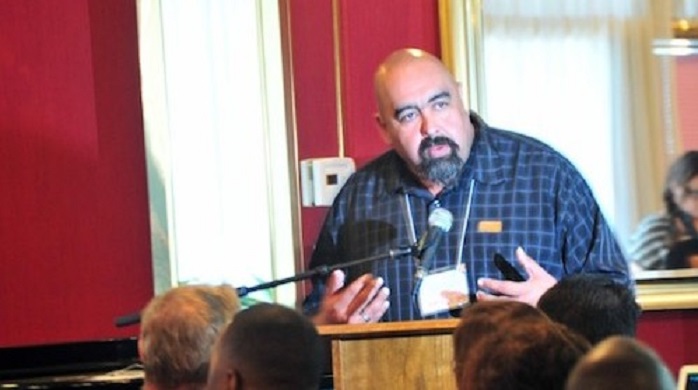[Author]by Julian Do
New America Media
[/Author]
LOS ANGELES — The real-life story of José Osuna — like the character Jean Valjean in Victor Hugo’s novel Les Misérables — gives credence to the idea that a second chance is sometimes all you need to turn your life around.
A second chance is essentially what California’s Proposition 47, if approved by voters, would provide. The law would reduce prison terms for offenders like Osuna who were given long sentences for minor and non-violent offenses. The law would also reclassify many non-violent felonies, such as drug possession, as misdemeanors.
According to the most recent California Department of Corrections report, there are roughly 133,000 inmates incarcerated in California state prisons on any given day. If Proposition 47 passes, about one in five of those inmates could have their prison sentences reduced retroactively, resulting in early releases.
“At 17, I was arrested for a drug offense,” said Osuna, 45, who was a drug user and gang member before he reached 13. “When I was convicted, the judge sentenced me to a California state prison for five years.” Those years, he said, transformed him into something he never set out to be: a criminal. When he was released in his early 20s, he rejoined a gang and spent 13 of the next 17 years in and out of 12 different state prisons.
Stories like Osuna’s are commonplace in California, where the prison population has grown in recent decades to accommodate non-violent offenders swept up in the net of the federal War on Drugs and the state’s Three Strikes Law. Passed in 1994, that law imposed mandatory life sentences on anyone convicted of a third felony, regardless of whether that felony was violent or deemed serious in nature – something as minor as possession of an ounce of marijuana or stealing a hubcap would result in time served.
Osuna views the state prison system as a machine that feeds on people like him, only pretending to provide safety to the public. Recent trends suggest that the general public may be starting to see things similarly: in 2012 voters approved Proposition 36, a law that weakened the Three Strikes Law considerably, and seemed to signal a shift in public opinion in California about the role of prisons.
Faith leaders at the forefront
Today, alarmed by mass incarceration that has been separating families and damaging young people in their communities, religious leaders around the state are using Proposition 47 as a lightening rod to mobilize their constituents. Religious leaders gathered at a recent faith summit in Los Angeles, to map out a grassroots campaign to educate their congregations and get them out to vote for Prop. 47 on the November ballot.
Billed as The Safe Neighborhood and Schools Act, Prop. 47 would reclassify most of the “non-serious and nonviolent property and drug crimes” from a felony to a misdemeanor and permit re-sentencing for people who are serving sentences for misdemeanors and especially infractions.
The summit attracted nearly 150 religious and civic leaders from faiths such as Judaism, Catholicism, Islam, diverse Christian denominations, and ethnic communities such as African Americans, Jews, Latinos, Arabs, Filipinos, Japanese, Vietnamese, and Hmong.
Referring to the prison system – in which African-American and Latino populations are overrepresented — as racist and injustice, Rabbi Sharon Brous of IKAR, an independent congregation in Los Angeles, and Imam Shakeel Syed of the Islamic Shura Council of Southern California, joined in their call for community groups, regardless of ethnic makeup or religious affiliation, to unite in support of Prop. 47.
Other leaders, such as Father Wm. Tom Davis of Our Mother Of Good Counsel Catholic Community and Minister Alvin Tunstill of the Trinity Baptist Church, said the issue affects everyone.
“We should spend money on education, finding jobs for people, rather than keeping people in jails. Not only that, [but] socially, every time a person is jailed, his or her family is wrecked,” said Rev. Tunstill.



